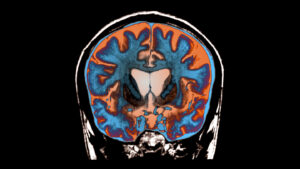Having children is not on her to-do list.
Ellie Colson, 37, a millennial from the U.K., says she believed motherhood was her destiny, and she was previously engaged to be married.
Although her wedding was booked and paid for, Colson says something didn’t feel right.
When the relationship ended, she felt a huge weight lift — realizing her “dream future” was really just societal pressure.
“As my friends and family started getting married and having children, the more it reaffirmed that the decision I made was the right one,” Colson told Newsweek.
At 29, Ellie met her current partner, Karl. They had the talk early — no weddings, no kids.
Both being introverts, they knew their future didn’t include children. After eight years together, they’re thriving in their childfree life, spoiling their dogs, traveling freely, and enjoying a calm, tidy home.
Colson recently went viral on TikTok, sharing the 10 reasons she’s proud to stay childfree — from hating childbirth and wanting to focus on her career, to avoiding the mental load children bring.
10 reasons Colson doesn’t want to have kids
- “I spend my money on me and only me (and my dogs…obvs), I don’t want to be ‘affording’ children! And I definitely don’t want to sacrifice things I want for them.”
- “I don’t fancy childbirth; risking my life to bring a child into the world doesn’t seem worth it AT ALL.”
- “My dogs are enough; they’re not children but for how much time and money I dedicate to them they might as well be!”
- “The thought ‘children would make this holiday much better’ has NEVER entered my head. We love to see the world together without children.”
- “Society today is dog sh-t, who wants to raise a child into such uncertainty? Not me!”
- “Life is hectic; I love being at home, candles lit, reading a book, in peace. Bliss.”
- “Your life is no longer your own; your life becomes your child’s school run, after-school activities, kid parties etc.”
- “I love netball, powerlifting and hiking, when would I find the time to train regularly and effectively with children?”
- “The fact that women (usually) have to give up their career/ job for maternity leave etc. doesn’t sit right with me; I’m a hard worker and dont want children to hinder that!”
- “I am the FUN AUNTIE, the one who gives zero f-cks!” Motherhood just isn’t for me.”
The video racked up nearly a million views and 47,000 likes.
“Parenthood isn’t for everyone and equally, a childfree life isn’t for everyone, but that is OK,” Colson said. “Not a day goes by that I don’t think about how my life would be if I had to think about a child, and it reaffirms my decision that little bit more.”
Of course, the backlash has come, with some calling her selfish or questioning who’ll care for her in old age. But Ellie isn’t bothered.
She adds that the mental load of juggling household, work, and kids would take a toll on both her and Karl’s mental health.
Since her TikTok blew up, she’s connected with thousands of other childfree people; plenty of others chimed in to dismiss the idea that children ruin your own life, but Colson isn’t changing her mind.
“Societal pressures aren’t quite as bad as they were in times gone by, but still very old-fashioned as women are expected to be the homemakers,” she said.
“The best comment (or worst, whichever way you look at it) that I have heard is ‘why were women put on this earth if not to birth children?’ It’s pig-headed people like this that ensure women will always be seen as inferior.”
And Colson isn’t alone.
The fertility rate in England and Wales has fallen to the lowest level since records began, according to Office for National Statistics (ONS) data.
The average total fertility rate (TFR) – the average number of children born to a woman – was 1.44 children per woman in 2023, the lowest since records began in 1938.
Not feeling ready, and the cost of housing and childcare are amongst the list of reasons millennials are choosing not to have children, research from the UCL Centre for Longitudinal Studies has found.
The same is happening in America.
In the early 1960s, the US total fertility rate was around 3.5, but plummeted to 1.7 by 1976 after the Baby Boom ended. It gradually rose to 2.1 in 2007 before falling again, aside from a 2014 uptick. The rate in 2023 was 1.621, and inched down in 2024 to 1.599, according to the CDC’s National Center for Health Statistics.
Read the full article here














